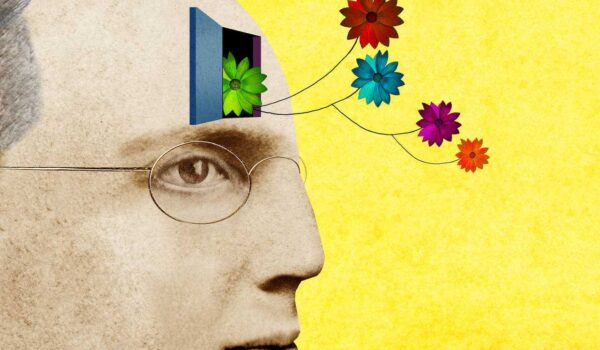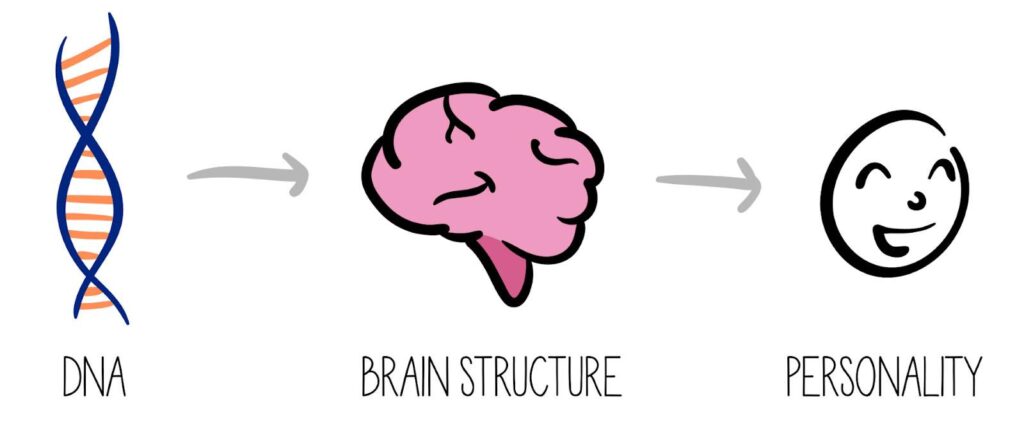Can Personality Change Over Time?

Personality is a complex and multifaceted construct that shapes how individuals perceive, think, and behave in various situations. Traditionally, personality traits were considered relatively stable and consistent throughout a person’s life. However, recent psychological research has challenged this assumption, leading to the inquiry: can personality change over time?
This article delves into the psychological foundation of personality, examines the evidence for stability and change, and explores the various factors that influence how can personality change over time.
Understanding Personality

To answer the question, can personality change over time, it is essential to first grasp the concept of personality. Personality typically refers to the combination of traits, behaviors, emotions, and thought patterns that are characteristic of an individual. These traits are often categorized into broad dimensions, such as the “Big Five” personality traits: openness to experience, conscientiousness, extraversion, agreeableness, and neuroticism.
Each of these traits exists on a spectrum, with individuals varying in the degree to which they exhibit each trait. For example, someone high in extraversion might be energetic and outgoing, while someone lower in extraversion might be more reserved and introspective. The central question remains: can personality change over time as these traits evolve?
Traditional Views on Personality Stability
For much of the 20th century, psychologists believed that personality was relatively fixed and stable. This perspective was largely influenced by early trait theorists like Gordon Allport and Raymond Cattell, who argued that personality traits were enduring dispositions that remained consistent across time and situations. These early views tended to minimize the idea that can personality change over time.
This view was supported by longitudinal studies showing high levels of consistency in personality traits over time. For example, research tracking individuals over decades found that people tend to maintain their relative standing on various personality traits. If someone scored high on conscientiousness at age 30, they were likely to score relatively high at age 50 as well.
As a result, the idea that personality could significantly change was downplayed. The concept of a “set-point theory” emerged, suggesting that individuals have a baseline level of personality traits that they return to after temporary deviations. But the question of whether can personality change over time in more substantial ways has persisted.
Emerging Evidence for Personality Change

In recent years, however, the traditional view of personality as fixed has been challenged by new research suggesting that personality can indeed change over time. While there is evidence for stability, studies also show that personality change can occur, particularly in response to life experiences, developmental stages, and even intentional efforts.
- Developmental Changes:Research has consistently shown that personality can change over time during significant developmental stages. Adolescence and early adulthood are particularly associated with noticeable personality changes, as individuals navigate identity formation, relationships, and career choices.During this period, people generally become more agreeable, conscientious, and emotionally stable, reflecting the natural maturation process. This phenomenon has been termed the “maturity principle” of personality development, which suggests that as people age, they often grow more responsible, empathetic, and emotionally stable.However, personality can change over time even beyond early adulthood. Studies have demonstrated that individuals continue to evolve in traits like agreeableness and conscientiousness well into middle age and beyond. For example, a person in their 40s or 50s may become more nurturing or reliable as they take on new roles, such as parenthood or leadership positions. Thus, understanding how personality can change over time is key to exploring human development.
- Life Events and Experiences:Significant life events and experiences can also be powerful catalysts for personality change. Events like marriage, parenthood, job loss, illness, or the death of a loved one can have profound impacts on an individual’s personality, showing that personality can change over time in various circumstances.For instance, research has found that people who experience unemployment often become less conscientious and more neurotic, reflecting the stress and uncertainty that accompany job loss. Conversely, entering a stable and supportive relationship can lead to increased agreeableness and emotional stability over time.These findings illustrate that personality can change over time in response to external circumstances. The question of can personality change over time becomes particularly relevant when considering how external factors, such as major life events, can shape an individual’s personality.
- Intentional Personality Change:Another avenue of research explores whether people can intentionally change their personality traits. The idea of deliberately changing one’s personality may seem challenging, but studies have shown that it is possible with effort and sustained practice.For example, interventions such as cognitive-behavioral therapy (CBT) have been shown to result in personality changes, particularly in traits like neuroticism and extraversion. Individuals who engage in CBT to address anxiety or depression often report long-term reductions in neuroticism and increases in emotional stability. This demonstrates that personality can change over time even with conscious effort and psychological support.Furthermore, studies indicate that people who set specific goals to change their personality traits—such as becoming more organized or sociable—can achieve measurable changes over time. This demonstrates that personality can change over time when individuals are motivated to make changes and utilize appropriate strategies.
The Role of Biology and Genetics

While environmental factors and life experiences are important contributors to personality change, it is also essential to consider the role of biology and genetics. Personality traits are influenced by genetic factors, which can create a predisposition for certain traits. For instance, twin studies have shown that identical twins tend to have more similar personalities than fraternal twins, indicating a genetic component to personality. This adds another dimension to the debate about whether can personality change over time.
However, genetics does not dictate the entirety of an individual’s personality. The interaction between genes and the environment is complex, and even genetically influenced traits can change over time. Epigenetics, the study of how environmental factors affect gene expression, provides insight into how experiences can shape biological processes, which in turn influence personality.
For example, prolonged stress can alter gene expression related to emotional regulation, potentially leading to long-term changes in traits like neuroticism. Similarly, positive experiences, such as supportive relationships, can promote resilience and emotional stability, illustrating the dynamic interplay between biology and the environment. Therefore, personality can change over time, even when considering genetic predispositions.
Thus, while genetics plays a role in shaping personality, it does not negate the possibility of change. The question of can personality change over time must account for the intricate interactions between biology, environment, and individual choices.
Theories of Personality Change
Several psychological theories provide explanations for how and why personality can change over time. These theories offer valuable frameworks for understanding the mechanisms underlying personality development and transformation.
- The Social Investment Theory:The social investment theory suggests that personality changes over time as individuals invest in new social roles and responsibilities. According to this theory, as people take on new roles—such as becoming a parent or entering the workforce—they adopt behaviors and attitudes that align with these roles, leading to changes in personality traits.For instance, someone who becomes a parent might become more conscientious and nurturing as they adjust to the demands of caring for a child. Similarly, taking on a leadership role at work may lead to increases in traits like assertiveness and responsibility. This theory supports the idea that personality can change over time as individuals transition through different life stages and roles.
- Cumulative Continuity and Corresponsive Principle:The cumulative continuity model suggests that personality traits become more stable as people age, but that change is still possible. According to this model, early experiences can set individuals on specific developmental paths, leading to the reinforcement of certain traits over time. However, significant life events or interventions can alter these trajectories, leading to changes in personality.The corresponsive principle adds to this idea by suggesting that individuals tend to seek out experiences that are consistent with their existing personality traits, which then reinforce those traits. For example, someone who is highly extraverted may seek out social activities, further solidifying their extraversion. Nonetheless, this principle also allows for change, especially when new experiences challenge existing traits and foster growth. This perspective reinforces the idea that personality can change over time through various life experiences.
- Personality Plasticity:Personality plasticity refers to the concept that personality can change over time, and traits are malleable and can be shaped by various factors throughout life. This idea is closely related to neuroplasticity, which suggests that the brain can change and adapt in response to experiences. Just as the brain can rewire itself through learning or recovery, personality traits can change in response to new experiences and challenges.This theory supports the notion that personality can change over time, especially when individuals are exposed to new environments, relationships, or opportunities for growth. For example, a person who moves to a new country may become more open to experience as they adapt to a different culture and way of life. Understanding that personality can change over time helps illuminate the adaptability of the human mind.
The Limits of Personality Change

While evidence supports the idea that personality can change over time, it is important to recognize the limits of such change. Not all personality traits are equally malleable, and some may be more resistant to change than others.
For instance, traits like openness to experience and extraversion may be more flexible and responsive to life experiences, whereas traits like neuroticism and conscientiousness may be more deeply ingrained and difficult to change. Moreover, personality changes over time are often gradual and incremental rather than sudden and dramatic. Although people can change, they are unlikely to undergo a complete transformation overnight.
Additionally, individual differences play a significant role in the degree of personality change that is possible. Some individuals may be more open to change and more adaptable, while others may be more resistant to change. Factors such as motivation, self-awareness, and access to resources can also influence how much personality can change over time.
Conclusion
The question of can personality change over time is a nuanced and complex issue that has garnered significant attention in psychological research. While traditional views emphasized the stability of personality, emerging evidence suggests that personality can indeed change over time in response to developmental stages, life events, and intentional efforts.
Personality change is not uniform, and different traits may be more or less susceptible to change based on various factors, including genetics, environment, and individual choices. While personality may be relatively stable for some individuals, others may experience significant shifts in their traits as they navigate life’s stages and challenges.
Ultimately, the possibility of personality change highlights the dynamic nature of human psychology. It suggests that while our personalities are shaped by both biology and early experiences, they are not fixed destinies. Instead, personality can change over time, reflecting our capacity for growth, adaptation, and self-transformation throughout the lifespan.
By considering both the evidence for stability and the potential for change, we can develop a more nuanced understanding of personality and its development. Whether through intentional efforts or natural developmental processes, the question of can personality change over time sheds light on the ongoing interplay between who we are and who we have the potential to become.
